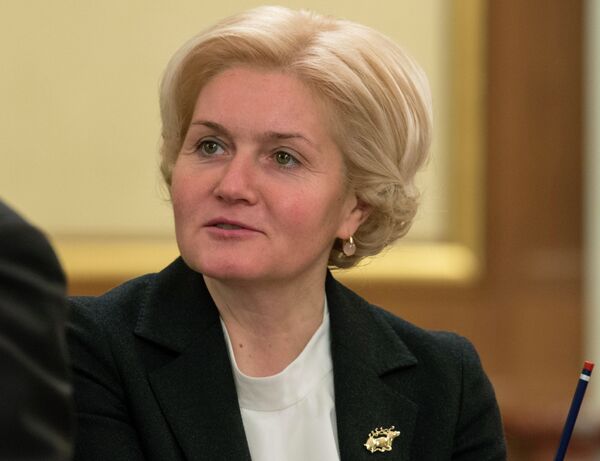MOSCOW, August 21 (RIA Novosti) – The Russian medical specialists departing for the Republic of Guinea will take part in the development of a new Ebola virus treatment, Russian Deputy Prime Minister Olga Golodets said Thursday.
“They [Russian experts] will work together with scientists from other countries to develop a new treatment, capable of defeating the [Ebola virus] disease,” Golodets told reporters.
A total of eight virologists from the Russian federal public health control service Rospotrebnadzor are due to arrive in Guinea, the deputy prime minister said.
“Our Rospotrebnadzor representatives have unique qualities, they are outstanding virologists. A team of eight people is departing today with special mobile stations, the best equipment we have,” Golodets said.
The new Ebola virus treatment is not ready yet but there are “some experimental approaches,” the official said, adding that the experts need to work directly with the virus to develop the drug.
Earlier, the Russian Emergency Situations Ministry reported that its flight to Guinea would bring a mobile laboratory and anti-epidemic Rospotrebnadzor team, consisting of epidemiologists, virologists and bacteriologists.
The number of deaths from the Ebola virus disease in the West African countries of Liberia, Nigeria, Guinea and Sierra Leone spiked to 1,350, the World Health Organization (WHO) reported Wednesday.
Ebola hemorrhagic fever is a deadly disease transmitted through direct contact with the blood or bodily fluids of the infected. There is no licensed treatment or vaccine for the Ebola virus yet, which has a case fatality rate of up to 90 percent.
Last week, the WHO concluded that it is ethical to use experimental drugs to treat patients infected with the Ebola virus. The United States delivered three doses of the experimental ZMapp serum to Liberia. According to the health agency, some 10 or 12 doses of the vaccine currently exist there.




